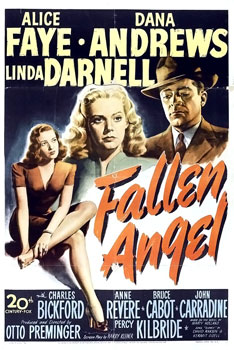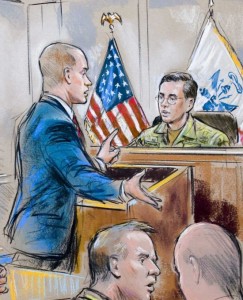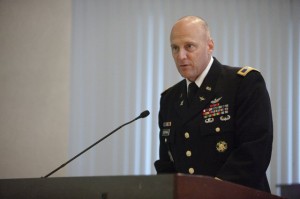…she, June Miller, wanted to make sure, after she was gone, whenever that was, and her attorney went to her private safety deposit book and retrieved her notes, that everybody got the story, the story of her, Eric, and that tramp Stella, right, got it right far away from the way Pop over at his two-bit dinner where Stella worked before the fall had told it,told it so that it entered the common town wisdom just that way he talked it up. Pop, the old goat, who was half in love with Stella himself. Got it right too away from the way the newspapers had blared it out every which way like there was nothing but a sex sin city running in old beat down ocean front Bayside City. Got it right too against Eric who almost took the fall for that damn tramp’s murder. And got it right against Judd, Judd the hick ex-cop from New York City who did take the fall, took the big step for Stella’s murder. And she, June Miller, should know, know all the details, after all she had been the other woman, the mistreated, abused left behind other woman, the angel sticking by her man when the deal when down, according to the newspapers and to old Pop. But let her tell the story, tell it true, although it will never make any newspaper, never be the subject of endless morning breakfast hams and eggs, over easy, with a cup of joe, twenty-five cents please, at Pop’s, or be the subject of pillow talk between she and Eric.
She knew Stella was a tramp, knew like every woman knows, every woman who keeps tabbed up on such things, from the first day she sashayed off that heading north Pacific coastal highway bus that stopped once a day at what passed for downtown Bayside City. She had every guy looking, looking with that Saturday night bed room look, even guys with their woman beside them, all of a sudden bending down to tie their mother taught double-tied shoes to catch a glance of her, and not catch hell. She was a looker all right, tall, long legs and not afraid to show them (hell, glad to show them), big brown hair all wavy to one side, the fashion then, brown eyes, dark silky complexion, big ruby red lips that spoke of sex, sex and more sex. Her clothes though, strictly off the cheap rack, and that bus ride, showed she was from hunger, like a lot of west coast pretty girls were back then, looking to move on from wherever they hailed from, looking for some little ring and respectability, or at least a good time.
Later, after Stella got a job serving them off the arm at Pop’s bringing extra business just by being there, dating every guy who had two dimes to rub together for a dance, quarters for some cheap low- shelf scotch, and dollars for some Woolworth’s faux jewelry, she told everybody her story about being from nowhere San Diego, and how she had to split, after some unexplained hard time with an ex-boyfriend. June though then with those dark features she probably had a little mex in her, a little brown world mex whore all ready to show any man with the dinero some mex love, maybe taught to her early, like a lot of them, from some tio taco, and then on to the streets, on to the streets early. An old tramp story, as old as Adam and Eve, maybe older
Maybe though all women are tramps, or at least a lot of guys go for those who give that appearance and Stella was a step up, just some whore who didn’t have sense enough to cash in big on her looks and her come hither appeal. Maybe working her way up to some Hollywood producer’s concubine. June knew in her own case that if people around town had known what she had done when she went away to college, keeping a married man as a lover, keeping that married man just because he was married and no strings attached, and about what really happened when she took those three day trips every once in a while to North Beach up in Frisco town they would be calling her a tramp too, maybe worst. But she passed, passed easily for the town librarian (which she was) living with a man-scorned older sister in gentile circumstances.
And then he, Eric, blew into town, blew into town like the four winds, blew into town by happenstance, just another guy running away from the east coast after the war, maybe had done some time in battle –torn Europe, or some desolate Pacific atoll and New York, Chi town, Omaha, Denver were too small for him, he had to head to land’s end and try his luck, or fail trying. He, Eric, fresh out of dough, fresh out of luck, and fresh out of ideas, like Stella had some magic magnet wound up at Pop’s for some coffee and cakes. And there she was, any man’s girl, waiting for his line and waiting to see if he was the next best thing. Yah, she got her hooks into him, got her hooks into that smooth- talking guy good, and threw him for a loop. Got him thinking big idea thoughts again, got him all tied up. (He said later, later when it was all over and they, June and he, talked about it one night in bed, that it was probably that jasmine or cactus perfume she wore that drove him over the edge, that and that mex whore way she had about her that promised sweaty nights and cool showers afterward that got him all tangled up).
All balled up (even knowing she was seeing other guys on his dime, even knowing that guys were lined up at her door, even knowing guys were getting cramps from bending down to tie their silly shoes) Eric proposed marriage to Stella when she told him straight, straight through the heart, that was the deal or no deal (although that did not stop her later, after he had gotten his hooks in June, from taking him down the beach one night, down by secluded Seal Rock, to twist him around her finger by rocking him all night long just to make sure. June knew because she had followed then there and watched them for a while, furious).That’s when he headed to June’s door. See his big idea revolved around getting at some serious dough, and the only freed-upserious dough in town was at June’s (and her sister, Clara’s) residence. His bright idea was to con June out of her dough by fast-talking (he did that all right) her out of her virtue and then razzle-dazzlegrabbing the dough. Then he and Stella would blow town, maybe Frisco town, maybe east.
So June played along with him for a while, played the virtuous unworldly maiden ready to be swept off her feet by a fast-talking man who wanted to show her real life. One night he took her down to that same secluded Seal Rock where Stella had taken him and “seduced” her after feeding her with liquor (she would have preferred some reefer that got her hotter, more in the mood) and assumed the deal was done. Assumed he was now on easy street. She, playing ravaged virtuous maiden, insisted they get married, or else. Facing that prospect, and seeing where there might be some sense to that move in order to get some Stella money under the new circumstances, he went along with the deal. (Clara, knowing a two-bit hustler at best or just a fast-talking con man freaked out when she heard they were married but held her tongue.) That done, that marriage deed done (after a night of torrid love-making leaving him exhausted and sleepy since she had been able to score some reefer from a connection from her old school and got him to try some for the first time), they were to head to Frisco for their “honeymoon” and his dough payout.
Then the world fell in, Eric’s world. Stella was found murdered that next morning in her apartment by a neighbor who had earlier heard muffled sounds and someone, man or woman, she was not sure then, running away from Stella’s flat. She, when the police began their investigation, their all-out investigation because murder, murder most foul, in Bayside City was unheard of, claimed that someone was Eric. And so the investigation began to center on Eric, his motives and his opportunity. All the while he insisted that he did not do it, couldn’t have done it despite that witness. June insisted they flee, flee to Frisco, grab the dough she had stashed in a safety deposit box and head, head somewhere. He, shocked at Stella’s death, and then fearful when the frame came forming around his head, finally faced up to the idea that he was the fall guy for the big step-off bought her idea with both hands. They fled. To no avail though. The ex-cop, Judd, working as a special investigator, who was putting the heat on to solve the crime alerted the San Francisco police and they were there that morning at the bank to pick the pair up.
Eric was going to step off, take the big step, unless June did something, and quick before all the accumulating circumstantial evidence became a mountain (Eric’s con artist marriage to June, his being seen watching several times at Stella’s apartment late at night by some undisclosed witness, a bracelet found on the ground outside her apartment which he had given her after that night down at Seal Rock as a reward for her night’s work, and so on). And she found the perfect way to save her man, find the real killer. And she did. Just figured out who beside Eric had been inflamed by Stella. The list was a little long, including a travelling salesman who knew her when he was from hunger down in San Diego, but as it turned out the ex-cop, Judd, who had tried to frame Eric, a guy who had spent plenty of time at Pop’s drinking coffee and drinking Stella in, did it. June had traced the watch that Stella had on her wrist to him, bought at a local jewelry store when she started putting out her net. Judd had hit her too hard after he went up to her apartment to propose marriage and she laughed him out of the room. He didn’t like that, no man, no cop likes that. Case solved.
Well, almost case solved, see June knew, knew all along that Eric had not done it. He had been so reefer-stoned that first married night that he just zonked out after she took him around the world. She wasn’t sleepy thought, reefer made her stay wide awake. So after she took a shower to wash their love off, and got her street clothes on, she started walking toward the beach, toward Stella’s. She saw a man, who turned out to be Judd, fleeing that open door apartment. She went up the stairs, stepped into the apartment, and saw Stella silently stretched out on the floor, although still breathing. She impulsively grabbed a pillow and put it over Stella’s head snuffing the last bit of life out of her. Yah, June, an angel flying too close to the ground, a fallen angel.









